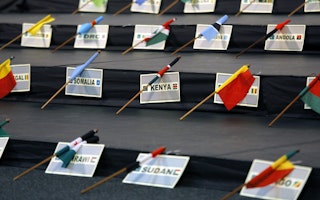Can the Poor Survive in Oil-Rich Uganda?
By Richard Mugisha
Since 2006, Uganda has discovered about 6.5 billion barrels of crude oil from just 20 percent of its petroleum fields in the Albertine region, making the country’s crude fields the third-largest by reserves in sub-Saharan Africa. Like a tale of agony and ecstasy, the discovery brought a moment of hope to Ugandans who have long yearned for resources that could lift them out of poverty—yet didn’t bring them the prosperity they’d anticipated.
Quite the contrary. With so much money suddenly at stake, land grabbing, the profit interests of multinationals, and the lack of transparency in oil and natural resource governance left many communities scrambling for survival.
Uganda’s constitution was amended in 2015 to specify that all minerals found in the country belong to Ugandans—but that the government, acting on behalf of the citizens, may extract those minerals for the national good. Unfortunately, that has meant that in the oil-rich areas of Hoima, Buliisa, Masindi, and Karamoja, poor landowners have been pitted against powerful forces seeking commercially viable chunks of land for business opportunities.
The roots of this problem can be traced back to Idi Amin’s dictatorship, during which a decree declared all land in Uganda to be public. The state held this land in trust for the people. The 1995 constitution repealed the decree and restored the land tenure systems based on customary one-square-mile land parcels known as mailo.
Most communities in Uganda live on these customary setups and, unlike freehold and leasehold landholders, normally occupy their land by ancestral rights as opposed to written documents from the government. To acquire land in a customary setting, one has to be a member of the community or apply through the community leaders for private land ownership.
In oil-rich areas, however, since customary landowners have no written evidence of ownership, rich individuals and oil companies have used land grabs to pave the way for oil exploration and production. In a few cases, minimal compensation for food and housing has been made to communities, but the regime of land tenure does not favor customary ownership. The government has failed to implement the provision of the constitution meant to protect customary landowners; instead, powerful politicians have been implicated in supporting “investors” to grab land from community owners.
In some places, indigenous people have been evicted to make way for wildlife conservation and tourists, as well. In northeastern Uganda, for example, the Karamojong were evicted from Kidepo Game Park where they used to graze their cattle. The hunter-gatherer Batwa in western Uganda have also been victims of land eviction in the name of wildlife conservation or development. A new tourism area has been developed in Kayiso-Tonya in western Uganda where people used to gather firewood and fish on Lake Albert. In all of these places, livelihood has been sacrificed for development.
An investment boom in the natural resources sector continues to put pressure on landowners. The government has carried out a countrywide mapping exercise for mineral extraction, with all minerals earmarked for investor applications. If the government can compulsorily take land for development, this essentially renders the constitution irrelevant.
Since 2008, the Open Society Initiative for Eastern Africa has worked with communities to protect their lands or negotiate for fair compensation. Communities are learning to demand their rights and to call for transparency and accountability from the government.
Development initiatives must benefit all, including the poor, and coexist with citizens’ livelihoods. This means a high level of accountability and transparency from government. Multinationals and other private investors must be held responsible for their actions.
Richard Mugisha is a program officer with the Open Society Initiative for Eastern Africa.


